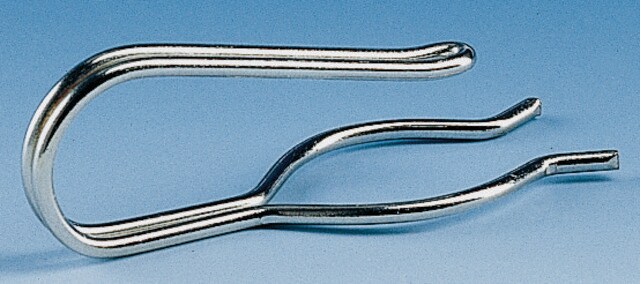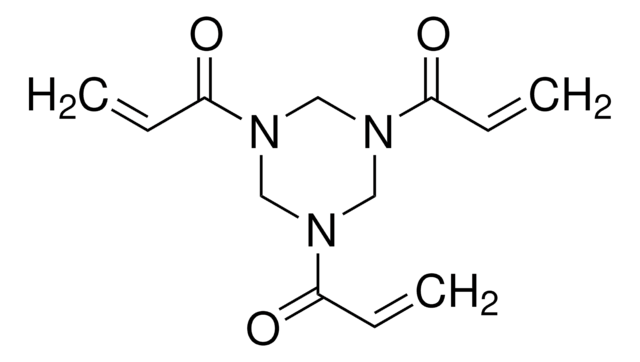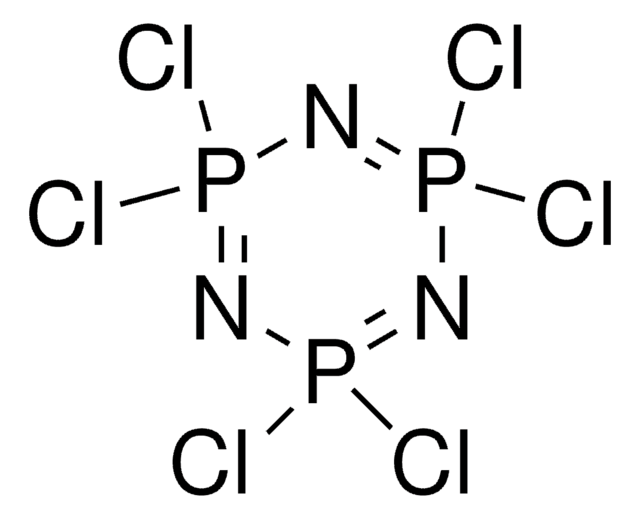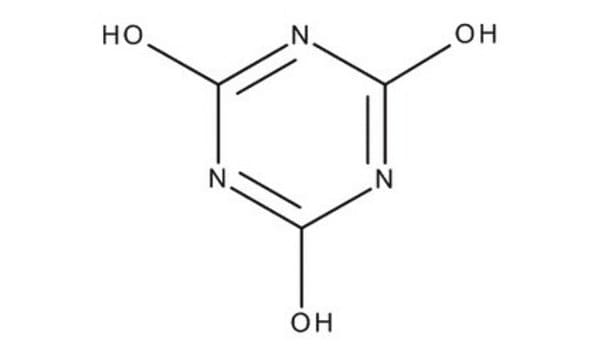C95501
Cyanuric chloride
99%
Sinónimos:
2,4,6-Trichloro-1,3,5-triazine
About This Item
Productos recomendados
vapor density
6.36 (vs air)
Quality Level
vapor pressure
0.8 mmHg ( 62.2 °C)
assay
99%
form
powder
bp
190 °C (lit.)
mp
145-147 °C (lit.)
storage temp.
2-8°C
SMILES string
Clc1nc(Cl)nc(Cl)n1
InChI
1S/C3Cl3N3/c4-1-7-2(5)9-3(6)8-1
InChI key
MGNCLNQXLYJVJD-UHFFFAOYSA-N
¿Está buscando productos similares? Visita Guía de comparación de productos
Application
- In the preparation of acyl azides from carboxylic acids and sodium azide.
- For the conversion of carboxylic acids, N-Boc, N-Cbz, and N-Fmoc amino acids into corresponding alcohols.
- For the conversion of alcohols into the corresponding carbonyl compounds by alternative Swern oxidation reaction.
It can also be employed as a catalyst in the Beckmann rearrangement of ketoximes into amides in the presence of ZnCl2.
signalword
Danger
hcodes
Hazard Classifications
Acute Tox. 2 Inhalation - Acute Tox. 4 Oral - Eye Dam. 1 - Skin Corr. 1B - Skin Sens. 1A - STOT SE 3
target_organs
Respiratory system
supp_hazards
Storage Class
6.1A - Combustible acute toxic Cat. 1 and 2 / very toxic hazardous materials
wgk_germany
WGK 1
flash_point_f
>392.0 °F - closed cup
flash_point_c
> 200 °C - closed cup
ppe
Eyeshields, Faceshields, Gloves, type P3 (EN 143) respirator cartridges
Elija entre una de las versiones más recientes:
¿Ya tiene este producto?
Encuentre la documentación para los productos que ha comprado recientemente en la Biblioteca de documentos.
Los clientes también vieron
Artículos
Collagen molecules play a critical role in tissue architecture and strength, and in cell-matrix interactions as insoluble ligands to regulate the diverse phenotypic activities of cells.
Collagen molecules play a critical role in tissue architecture and strength, and in cell-matrix interactions as insoluble ligands to regulate the diverse phenotypic activities of cells.
Collagen molecules play a critical role in tissue architecture and strength, and in cell-matrix interactions as insoluble ligands to regulate the diverse phenotypic activities of cells.
Collagen molecules play a critical role in tissue architecture and strength, and in cell-matrix interactions as insoluble ligands to regulate the diverse phenotypic activities of cells.
Nuestro equipo de científicos tiene experiencia en todas las áreas de investigación: Ciencias de la vida, Ciencia de los materiales, Síntesis química, Cromatografía, Analítica y muchas otras.
Póngase en contacto con el Servicio técnico











